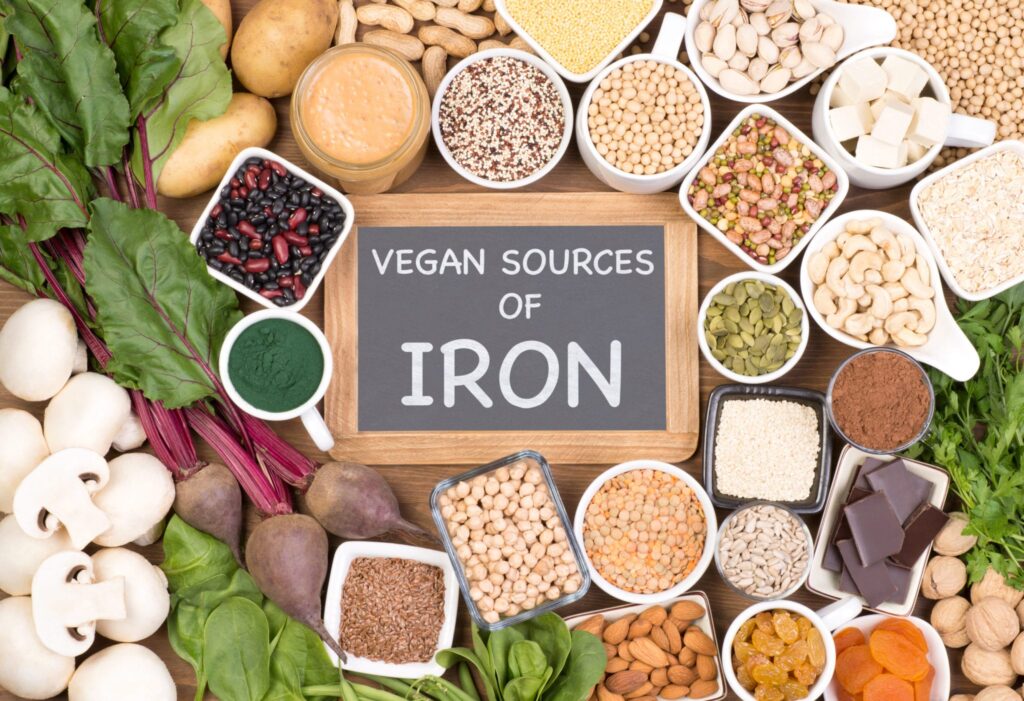Iron and Folic Acid: Key Nutrients for Vegans and Addressing Deficiency

Iron and folic acid are essential nutrients that play vital roles in our overall health and well-being. While commonly associated with animal-based foods, it is important to understand how to obtain these nutrients on a vegan diet. In this article, we will explore the significance of iron and folic acid, discuss the risks of deficiency, and provide practical tips on incorporating them into a vegan lifestyle, without relying on milk or dairy products.
Understanding Iron and Folic Acid: Iron is a mineral that is crucial for the production of hemoglobin, the protein responsible for carrying oxygen in our red blood cells. It also supports energy metabolism and helps maintain a healthy immune system. Folic acid, or folate, is a B-vitamin that plays a key role in cell division, DNA synthesis, and the production of red blood cells.
The Risks of Deficiency: Iron deficiency can lead to anemia, resulting in fatigue, weakness, and decreased immune function. Folic acid deficiency can also cause anemia, as well as impair fetal development during pregnancy. It is important for vegans to pay close attention to their intake of these nutrients to prevent deficiencies.
Iron Sources for Vegans: While iron from plant-based sources may be less readily absorbed compared to iron from animal products, it is still possible to meet your iron needs on a vegan diet. Here are some excellent plant-based sources of iron:
- Legumes: Beans, lentils, and chickpeas are rich in iron, along with other important nutrients like protein and fiber.
- Whole Grains: Foods like quinoa, oats, and brown rice contain iron, particularly when consumed in their whole form.
- Nuts and Seeds: Almonds, cashews, pumpkin seeds, and chia seeds provide iron, as well as healthy fats and other beneficial nutrients.
- Leafy Green Vegetables: Spinach, kale, and Swiss chard are packed with iron and other vitamins and minerals.
- Fortified Foods: Look for iron-fortified cereals, plant-based milks, and tofu to supplement your iron intake.
Enhancing Iron Absorption: To maximize iron absorption, pair iron-rich foods with vitamin C sources such as citrus fruits, berries, or bell peppers. Cooking in cast-iron cookware can also increase the iron content of your meals. Avoid consuming iron-rich foods with coffee or tea, as these beverages can inhibit iron absorption.
Folic Acid Sources for Vegans: Folic acid is abundant in various plant-based foods. Here are some excellent sources to include in your vegan diet:
- Dark Leafy Greens: Spinach, kale, and broccoli are not only rich in iron but also provide a good amount of folic acid.
- Legumes: Lentils, chickpeas, and black beans offer a good dose of folic acid, along with other essential nutrients.
- Fortified Foods: Many plant-based milks, breakfast cereals, and nutritional yeast products are fortified with folic acid.
Supplementing with Iron and Folic Acid: In some cases, individuals may require iron and folic acid supplements to meet their nutritional needs. Consult with a healthcare professional or registered dietitian to determine the appropriate dosage and duration of supplementation, as excessive intake can have adverse effects.
Conclusion: Iron and folic acid are crucial nutrients for overall health, and it is possible to obtain them on a vegan diet without relying on milk or dairy products. By incorporating a variety of iron-rich plant-based foods and folic acid sources into your meals, you can maintain optimal levels of these essential nutrients. Regularly monitoring your nutrient intake and consulting with a healthcare professional or registered dietitian can help ensure you meet your specific dietary requirements for iron and folic acid, promoting optimal health and well-being on your vegan journey.




